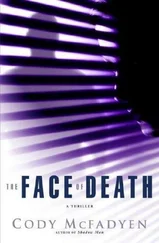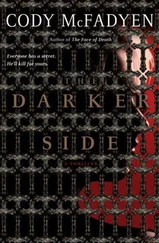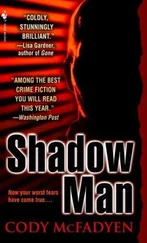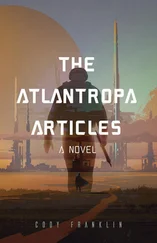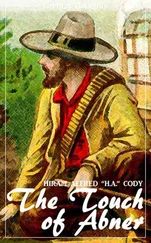“More insurance,” Alan says. “Maybe that’s why Douglas got overconfident about not paying Dali off. Thought he could blackmail him.”
“A miscalculation,” James observes.
I frown. “Seems strange Dali wouldn’t consider the possibility of something like this happening.”
Callie speaks up for the first time. She’s stayed quiet, though I’ve felt the weight of her gaze on me. “I think it goes back to what I talked about before: risk assessment. He could have weighed the possibility against the necessity and decided the risk was justified.”
“He did take precautions,” James continues. “We’ve tracked the IPs used to a series of Internet cafés, a library—he used public systems, probably paid in cash.”
“Shit,” Alan says.
Something stirs inside my head. A glimmering. I frown. James looks at me closely. “What is it?”
“I don’t know. I feel like what you just told me is trying to meet up with some other information about the case. I can’t grasp it yet. Tell me again where he accessed the Web?”
He checks a paper. “Internet café. Internet café. Internet café. Library—”
“Stop.” I feel it now, swimming toward me, growing in size and clarity. “Library. That’s it.”
“What’s it?” Alan asks. “I’m confused.”
“Earl Cooper,” I say. I smile at James. “Which of these things is not like the other?”
“Library,” he answers, nodding. “I get it.”
“Explain it to the lesser minds, honey-love.”
“Cooper talked about mental maps. We find places of comfort and security both consciously and unconsciously.”
“I remember.”
“Dali goes to Internet cafés because they provide anonymous access. It’s a faceless location. He goes to a library for the same reason, and while it does provide the anonymous computer access, the location isn’t faceless. Think about it. Libraries are personal places. They’re cared for by someone, and they belong to a community. Librarians remember people. They keep an eye on the books, make sure the patrons don’t mistreat them; there’s a sense of ownership in a library that you’re not likely to find in an Internet café.”
“Not to mention the difference in the level of traffic going through it,” James adds.
“Okay,” Callie says slowly. “I’m starting to understand.”
“Dali’s careful, and while the choice of a library’s not exactly what I’d call high risk, it is a behavioral anomaly. Remember what Earl said: Mental maps are formed both consciously and unconsciously. They exert their influence in both ways too. So why does Dali feel a connection with this library? Why does he feel unconsciously safe enough to use it?”
Alan snaps his fingers. “Because it’s familiar.”
“That’s right. And why is it familiar?”
Callie supplies the answer this time. “Because it’s in the area.”
James sits down at his computer. He checks the library address and types it in. A moment later the location appears on Google Maps. “Down in the Valley,” he says. “Near Reseda and Oxnard.”
“Where are the property searches you guys did?” I ask.
“Here on the computer. I tabulated them by zip code. It didn’t lead us anywhere. Too many of them, incomplete records, and so on.”
“It’s a shot in the dark, but let’s try again. We can narrow the area now. Let’s take the lists five miles in each direction from the library and look for anything that pops out. From what I recall, Cooper was on the money. It felt like a storage place. It had six-to eight-foot-high chain-link fencing around it.”
“Lot of storage places in that area,” Alan says.
“We can eliminate any franchises,” James provides. “You’re required to pay royalties, and you run the risk of inspections.” I nod. “That’s good. So?”
“It’s better than nothing,” Alan agrees. “Start printing, James. We’ll divvy it up and see what we see.”
Five miles yields nothing. Excitement wants to die, to become discouraged, but we’re used to this. Sift through the useless, nine out of ten times you find nothing but more useless. One time in ten you find a diamond. We’ve all found enough diamonds over the years to keep going.
We widen the diameter to ten miles. Alan grinds his heavenly grounds and brews coffee for all of us except James, who drinks green tea. He’s always been that way. I’ve never seen him drink whiskey or Coke or take a sip of coffee. Tea and water, that’s it.
When it does appear, it stands out in neon, and it makes my stomach dip. It’s too simple, far too cute, and it makes me wonder again about Dali and the truth of what drives him.
Meet Storage Solutions , the entry says.
I’m just storing meat. Those were his words.
I check the distance. Just eight miles away from the library.
“I think I have it,” I tell them.
I explain. Callie makes a face of disgust. “‘Storing meat’? Gross.”
James takes the address and types something into his computer. A page comes up with a list of facts. “It’s been in business for more than twenty years. The building itself has been there longer than that, but not by much.”
“He could have converted an existing structure,” Alan points out. “Lot cheaper to do that in Los Angeles.”
“Building permits were pulled twenty years ago,” James confirms. “Doesn’t say what they were for, but there were quite a few. The building was a concrete structure from the beginning.” He taps a few more keys. “No income information. That’s all I have. Not enough to be sure or to get a warrant, on the face of it.”
“Let’s go see it,” I say. “I’ll know if it’s the place, and my testimony will get us a warrant if it is.”
Space exists at a premium in Los Angeles, as with any large city. The best butts up against the worst, as all try to live in relative harmony. The address we find ourselves at sits on a large lot on a side street off Victory Boulevard. Next to the structure is a fenced-in, boarded-up gas station. A sign asks patrons to PLEASE BE PATIENT WHILE WE UPGRADE OUR FACILITIES! The sign is rain-battered and sun-faded, as though the upgrade of the gas station is long forgotten.
A half block away is Victory Boulevard, busy at all times of the day and night. Just around the corner is a bustling adult-video store, a fish-and-aquarium shop, and a haberdashery, just to name a few. Most signs are in English, some are not, but other than the gas station, every storefront seems occupied.
We’ve parked on a side street, and I stare at the structure from a distance. I’m standing outside the car. It’s late afternoon now. The sun is still up but is lower in the sky, and a cool breeze kisses my baldness.
Is that it? Is that where it happened?
The fence looks the same, but I’m starting to understand just how little I actually got to see. Dali’s brilliance, as James had said. The chain-link gate is padlocked.
“Well?” James asks.
“I can’t get the angle I need to be sure.”
“Then get the angle you need.”
I raise an eyebrow. Sweat beads on my upper lip. I am a dichotomy of emotion. Flippantly afraid. “You mean climb over? That’s breaking the law, James.”
He looks away. “Leo Carnes was an agent. You’re an agent. If we don’t make someone pay for this, then we’re all in danger. I’m going to emulate Dali’s pragmatism on this one.”
I look at Callie and Alan. “How do the two of you feel about this?”
“Hell is freezing over.” Callie winks. “I agree with James.”
“You know where I’m at,” Alan says.
I examine my injured finger, flexing the hand. It hurts.
“I don’t think I can climb it.”
Читать дальше

